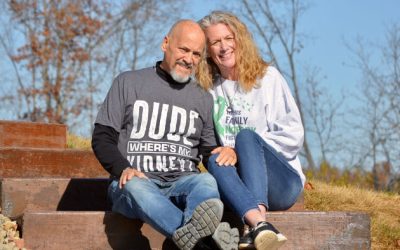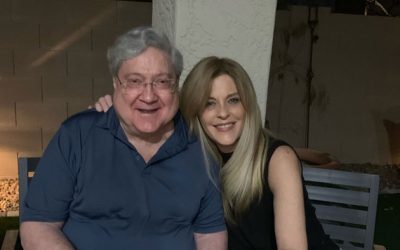I was born and raised in the San Fernando Valley area of Los Angeles, attended high school in Montreal while my aircraft engineer father was on special assignment there, and graduated from UCLA (political science). I was working as Vice President of Marketing for a national legal services firm when I decided to focus full time on raising my young son. Up until childbirth, I had no known heart condition.
On the day that Matthew was born, my father-in-law, a USC medical school professor, held his newest grandchild while the family chatted. As doctors tend to do, he kept one eye on my EKG monitor, and after an hour of watching it, he saw a nearly imperceptible irregularity in my heart rhythm. He mentioned this to my hospital doctor who agreed I should be evaluated by a cardiologist after discharge. So began my path toward heart transplant. The cardiologist confirmed a slight abnormality that required no intervention for many years.
After 10 years of management via pharmaceuticals, cardiomyopathy became clear, and I received an implanted pacemaker-defibrillator. Another 10 years after, I was referred into the advanced heart failure monitoring and therapeutics department of my health care provider. In late December 2017, my advanced cardiologist concluded based on her several “minor” cardiac arrests in recent months, wherein the device intervened, that my heart was severely damaged from these episodes in addition to being enlarged and stiff from long term decline. My doctor said the best of modern medications could maintain my low-level heart function for at most another year or so, but soon would become ineffective and my heart would enter uncontrollable decline wherein neither the implanted device nor any medications would save me.
This devastating information drove both myself and my husband Jim to tears. I immediately began the many tests and tasks toward being formally considered. A week into the evaluations, I had yet another arrest, and was revived by my implanted device and hospitalized. Fearing I would not survive another episode if at home, I was kept inpatient until my evaluations were complete.
I soon qualified for transplant, medically, financially, psychologically, and socially and was listed. My heart was considered at imminent risk of un-controllable, un-revivable failure so within a few days I qualified for the next suitable organ in the region (Priority 1A at the time). I received and accepted an “offer” on January 29, 2018 – one month after learning I needed transplant emergently – and entered my 12-hour overnight surgery. In the morning, the lead surgeon told Jim that I was doing well, and my new heart was “fantastic” in that it appeared very healthy and vibrant; he said it began pumping merely from hand warming without electric stimulation.
My team needed to re-open my chest twice that morning to address persistent leaks and again a week later to remedy additional internal bleeding. Then, I was rushed back to ICU due to intense pain that maximum dose medications could not control but nearly stopped my breathing. Narcan restored my breathing, but I suffered many hours of intense pain without relief. I was discharged from with my new heart on Valentine’s Day 2018.
Soon after, I suffered bouts of both cellular and antibody rejection, e-coli and salmonella infections, and my chest incision would not heal for several months (I had a wound vacuum for a long period). I was re-hospitalized multiple times before being allowed to go home. While recovering in the near-hospital apartment which my medical team required but my health insurance paid only part of the expense (even though it was generous in many other ways), I wondered how financially challenged heart transplant patients pay for what their insurance doesn’t cover and what consequences befall them when they can’t afford what is required.
To help fill the gap for Northern California heart transplant patients in financial need, I formed Heartfelt Help Foundation, a 501c3 public charity, which raises funds for them because no other such organization existed in Northern California. In its two years of existence, Heartfelt Help Foundation has provided cost free housing to every transplant patient who came to us seeking assistance. It has been healing for me to be able to be there for other patients as they begin this adventure with transplant.



